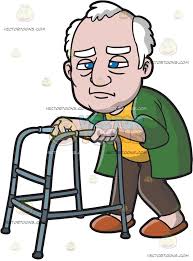I recently attended a wonderful lecture, where as an aside, the Rabbi mentioned how difficult it is when we realize we are aging and can no longer do everything for ourselves. Before he went on to add some truly encouraging and inspiring words, someone behind me mumbled under her breath, “Tell me about it.” This got me thinking.
We’ve all heard the saying “age is relative.” Anyone who’s ever been a kid or been related to a kid knows just how true this is. You see, children have a very limited vision of age. In their eyes, you’re either a kid (this includes babies) or you’re not (this includes bubbies). If you’re not a kid, then you have two options: You can either be married or you can be a morah (teacher). If you’re a morah, you live at school, and if you’re married, you live with your family. It is an uncomplicated web they weave – that is, until they see their morah at Seven Mile Market. A child’s reaction to seeing their morah falls into two categories: “fright or flight.” If the child is young, then, with a little prompting from their mothers, they shyly peek out from behind her skirt and whisper a barely audible hello. If the child is a little older, the conversation goes something like this: “Look,” they say to their mother, “there’s Morah Sarah.” Just as you turn your cart and glance over your shoulder, your daughter yells, “Run!” Children’s shock of seeing their morah outside of school has shattered their carefully constructed understanding of the world.
A child’s misunderstanding of age comes to light in many ways. Once, when my daughter was learning about presidents, she turned to me and asked if I was alive when George Washington was president. After a negative and slightly huffy response on my part, she then piped up, “Well, what about when Abraham Lincoln was president?” Needless to say, that history lesson ended quickly. On another occasion, my nephew, who was all of six years old, wanted to play Connect Four. It turns out that he is a whiz at the game, and he not only beat me but also beat his grandfather. As we complimented him on his wins, he proudly added, “I beat a second-grader at school.” I said, “That’s great, but you also beat me and grandpa.” To this he scoffed and said, “Yeah, but you’re old.”
















